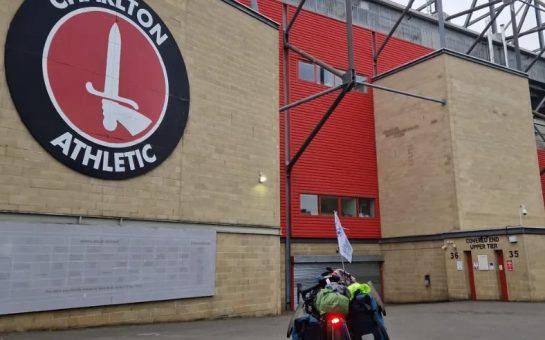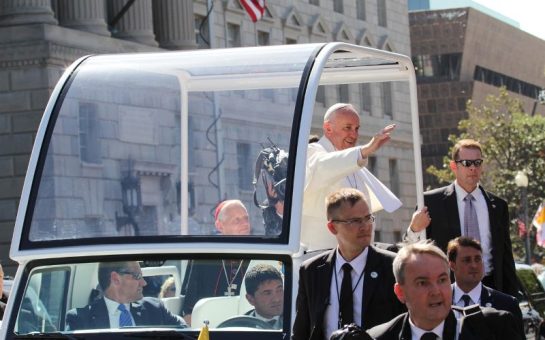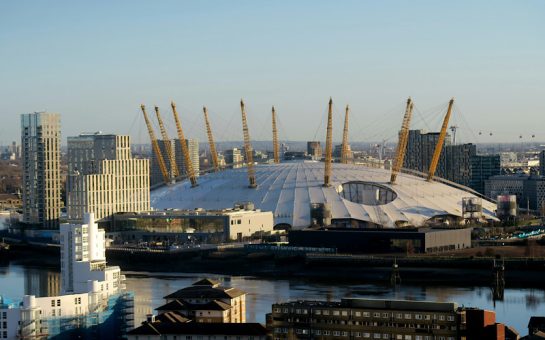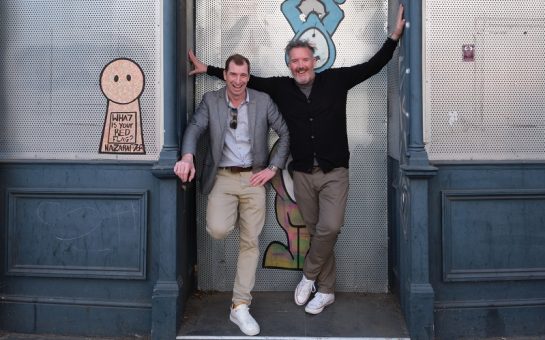The Euro 2020 final was, for many fans, more than just a game.
For the first time in a generation, England made it to a major final. The last time the Three Lions triumphed was at the World Cup in 1966.
It was also a chance of redemption for manager Gareth Southgate after his missed penalty in Euro ’96 dashed England’s hopes of glory. It would have been poetic for Southgate to lead the squad to victory 25 years after he, aged just 21 at the time, stood in that same stadium with the weight of the nation’s hopes and fears on his shoulders.
On the week of the final in July, the sun was shining. People were looking forward to pandemic restrictions being lifted. The air hummed to the tune of ‘It’s Coming Home’ and ‘Football’s Coming Home Again’.
This feeling of hope was infectious, and extended to people who typically don’t engage with football. The graciousness of the England squad as individuals captured the hearts of even the most sports-adverse amongst us. Between Marcus Rashford feeding hundreds of thousands of hungry children, to the pictures of Bukayo Saka mounting an inflatable unicorn, we were all besotted.
At the competition’s crescendo on the night of July 11, fingernails were chewed the world over as the squad filed out onto the pitch.
Due to Covid restrictions, only three quarters of the stadium’s capacity of 90,000 could be filled.
The events that unfolded would lead to UEFA starting disciplinary proceedings against the FA over the behaviour of fans.
Ticketless fans snuck in, some of whom allegedly bribed stewards to gain admission. Paying fans lost seats. People who attended reported contracting the ‘Wembley variant’ of Covid-19. Italy’s national anthem was greeted with booing. People reported seeing bottles and fireworks being thrown. A flare was even lodged somewhere it didn’t belong.
What exactly happened that night, and why? We spoke to people who were there.
Why I snuck into Wembley
John* from the north of England managed to get into Wembley without a ticket by creating a convincing fake video showing a ticket had been scanned.
John, who is in his early twenties, was already in London for the weekend for the game, and on the Sunday he decided to go to Wembley and chance his luck at the gates. He arrived at 6pm, and said at that point stewards were still trying their best. The video worked, and he also showed staff a genuine negative lateral flow test.
He said: “The atmosphere was tense outside the turnstiles because it was obvious there were lots of people looking to force their way in, inside the ground though it was like a party. It was going off in every section all game, I’ve never seen anything like it honestly.”
He said the stewards were not very good, but added that he doesn’t blame them as many of them were only around 18 or 19 years old.
He continued: “There were about 50 fans to one steward outside the turnstiles. Lots of them took bribes from fans and most just got out of the way if there was any danger.
“The reason why we jib is because of the ticket prices, the lack of tickets and because most of us couldn’t miss it. If we had won then it would have been the greatest night of my life, without question.
“Knowing how bad the security is and how easy it was, I couldn’t live with myself if I didn’t at least try it.”
The atmosphere died down during the penalties, and John said he saw fights breaking out – but that that’s just football, and it was nothing more than you would see at a Premier League or lower league game.
He said: “The thing is, England games are normally just for families and a bit touristy, but when you get England in a major final on home soil you’re obviously going to attract the die-hards. People were turning up expecting a nice day out but that’s not what to expect from the football, it’s not family-friendly.
“No one is there to cause trouble but the atmosphere is always rowdy, you can’t expect these things not to happen.”
This was John’s first time jibbing, but he explained that the gentrification of football and an increasing move towards commercialisation has alienated working-class fans.
“I think people see it as stealing, but in actual fact the game has been stolen from people like me. We’re simply taking it back at their expense. Most people don’t understand and I don’t really care if people have a negative perception of it. The media have never liked the working class, especially not working-class football fans and I’m not going to make any effort to change that.
“Is it right that an Instagram influencer can get a ticket for the biggest game in England for 55 years over someone who has been to over 1,000 games, including watching England away from home in different countries?
“The game was created in northern English cities and only thrived because of that support. It’s all well and good that the game needs to grow and it will eventually be commercialised, but it doesn’t need to price out true fans.”
Tickets advertised on the UEFA website ranged between €95 (£81) and €945 (£805), leaving many genuine fans feeling priced out.
UEFA also offered ‘hospitality’ tickets that cost between €780 (£665) and €1,200 (£1,023) per person, with the most expensive ‘prestige’ hospitality package costing €5,900 (£5,028) per person.
Touts cashed in by reselling tickets online, with Which? finding tickets listed for £17,000. iNews reported finding a set of four hospitality tickets with an asking price of £125,000 on a popular resale site.
“We’re all minimum wage workers, we’re all really young”
Bartender Diana Ibrahim, 20, has been working in hospitality for the past two years.
She wasn’t worried about going into work that day, as her recent shifts at Ascot, Wimbledon and the Trafalgar fan zone were successful.
The Sussex University finance student, from Bromley, was rostered to work between 3 and 9, but she had to go early to get the accreditations she needed for the event.
She said: “Before the game started and we set up all our bars, we were able to wander around and look out the windows and we saw the influx of people, loads of pushing, shoving, and then loads of flares and fireworks during the day.
“We were just glad we got in and we weren’t in that craziness because literally you could not see the floor at all. There were just so many people and all just pushing, shoving and just so much mess everywhere.
“The majority of staff there were teenagers, I’m 20 – but everyone there was late teens or early twenties with a few police who were all older.
“Normally stewards are just there to direct people, they’re not trained to do hardcore security. I’ve seen that some people have been bribed, but it was mostly people just breaking through the barriers and everyone just getting outnumbered and obviously stewards couldn’t really do much.
“It was all overran but there were just no safety precautions put in place. They made people take lateral flow tests and show results but those could easily have been faked and loads of people didn’t even do them or get them checked.”
Diana said she felt her and her colleagues were not supported by management during the event.
She said: “We kind of felt a bit deceived because we’re all minimum wage workers, we’re all really young. They didn’t really care for our wellbeing and safety at all. They didn’t warn us that it was going to be like this, there was just nothing put in place for us. They didn’t care for us at all.”
She said a bar upstairs to hers had to go into lockdown because staff were getting their passes stolen. These staff passes could be used to gain entry to Wembley, and she said people even used broken glass to try and threaten staff to get their passes.
Diana’s bar, a kiosk right by a fan entrance on level five, was locked down too for around 15 to 20 minutes, but she estimates others were locked down for up to an hour.
After the event, she had an awful experience with Covid that lasted two weeks.
She would rather now work smaller or more closed off events, and she cancelled her festival and concert shifts.
The fallout
Since that night in July, UEFA officially announced it would begin disciplinary proceedings against the FA over the “lack of order or discipline.”
After the match, England footballers Marcus Rashford, Jadon Sancho and Bukayo Saka endured racial abuse on social media.
This racism also spilled over onto the streets.
Racist graffiti was scrawled under a mural depicting the three players’ jersey numbers outside the Arthur Wharton Foundation in Darlington. Arthur Wharton is credited to be the world’s first Black professional football player.
Rashford’s mural in Manchester was also defaced. The mural was later mended and covered in tributes and messages of support. An anti-racism demonstration later took place at the mural.
Official Public Health England figures announced this week estimate that during the final, 2,295 people in or around Wembley stadium could have been infected with Covid-19. An additional 3,404 people in and around the stadium may have contracted the virus around the time of the event.
According to the BBC, an 18-year-old steward who sold security wristbands and lanyards has been sentenced and another 18-year-old charged with similar offences is due to go on trial on December 17.
In a statement after the event, the FA said: “We are determined to fully understand what happened outside and then inside Wembley Stadium at the UEFA EURO 2020 Final on Sunday 11 July 2021.
“We informed DCMS at the weekend that an independent review led by Baroness Casey of Blackstock has been commissioned to report on the facts and circumstances involved. It will speak to all parties concerned and include external experts.
“A key emphasis of the findings will be to ensure that lessons are learned and such disgraceful scenes are never able to be repeated. We continue to work with the relevant authorities in support of their efforts to identify those responsible and hold them to account.”
*Name changed for anonymity
Featured image credit: Wembley Stadium




